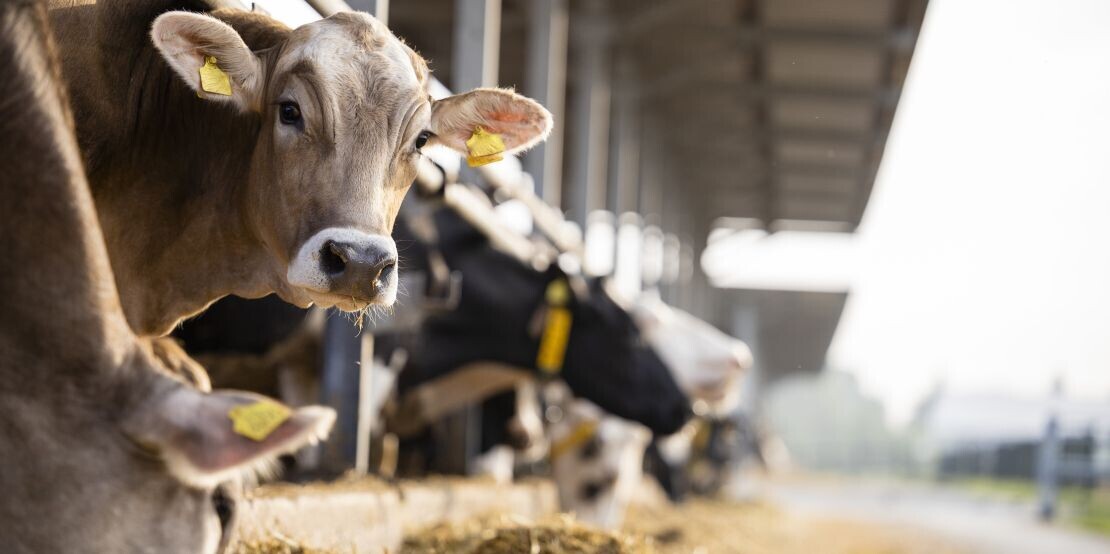
Dossiers - Reforms in the healthcare sector
Effectively combating animal diseases – from reaction to prevention
31.07.2025
The latest publication by AnimalhealthEurope on combating cross-border and emerging animal diseases makes it clear that Europe is facing growing challenges in the area of animal health. scienceindustries supports the industry's call for a greater focus on prevention rather than reaction in future and particularly welcomes the Federal Council's current revision of the Animal Diseases Act.
Animal health in Europe is under pressure: diseases such as bluetongue are becoming increasingly common north of the Alps. In response to recent outbreaks – such as serotype 3 of the bluetongue virus (BTV-3) in Switzerland – it becomes clear that the current purely reactive approach is not sufficient to protect animals, humans and the agricultural economy in the long term. scienceindustries therefore supports AnimalhealthEurope's call for a shift towards systemic and proactive disease control.
Cross-border disease outbreaks on the rise
In recent decades, cross-border animal diseases have increased significantly in Europe, both in terms of frequency and geographical spread. Diseases such as bluetongue (BTV-3), lumpy skin disease (LSD) and African swine fever (ASF) are now appearing in regions that were previously unaffected and are spreading there at high speed.
This development poses a serious threat to animal welfare: infected animals often suffer from severe pain, inflammation, fever or skin changes, sometimes with fatal consequences. At the same time, such epidemics also have serious repercussions for other areas. Agriculture faces considerable economic losses due to production losses or animal deaths. Last but not least, certain animal diseases can also pose a risk to public health or undermine public confidence in food safety and disease control.
This makes coordinated and rapid action all the more urgent, focusing on animal protection while also taking into account the economic, ecological and social consequences. The increasing dynamics of transboundary animal diseases require a forward-looking animal health policy that focuses on prevention, international cooperation and the rapid availability of effective vaccines.
Bluetongue
When BTV-3 broke out in Switzerland, no approved vaccine was initially available, even though corresponding vaccines had already been approved for temporary use in other European countries (EU Veterinary Medicinal Products Act (EU 2019/6, Art. 110, para. 2)). Vaccination could only take place after a special authorisation was granted in accordance with Art. 9 of the Animal Diseases Act (TSG). The resulting delay had direct consequences for the welfare of numerous animals. Against this backdrop, political pressure also increased: following several parliamentary motions, criticism was levelled at the slow availability of vaccines, coupled with calls to speed up approval procedures in future and base them more closely on cross-border experience and evidence.
Federal Council takes action – revision of the Animal Diseases Act creates legal basis
scienceindustries welcomes the fact that the ongoing revision of the TSG will now create a reliable legal basis for the rapid but controlled use of unauthorised immunological veterinary medicinal products. The proposed amendments will make it possible, as already provided for in the EU, to place such medicinal products on the market for a limited period in the event of a crisis. Our veterinary pharmaceutical companies have actively participated in the regular consultation process on the amendment to the law and expressly supported the approach taken (see statement by scienceindustries dated 30 July 2025, only available in German).
Systematic prevention instead of crisis management
Experience with BTV-3 clearly shows that a purely reactive approach – such as special authorisations – is not sufficient. Crisis-proof disease control requires a clear legal framework, close cooperation between authorities and industry, and a coordinated European vaccination strategy. scienceindustries therefore supports in principle the four key points proposed by AnimalhealthEurope (see also position paper):
- Maintaining ongoing dialogue between veterinary authorities and the animal health industry;
- Establishing a rapid response mechanism for the rapid development and distribution of vaccines;
- A legal framework geared towards future challenges that enables early action;
- European coordination on animal vaccination to reduce duplication and supply shortages.
One Health approach
The increase in animal diseases not only affects livestock farming but also has implications for human health and the environment. scienceindustries is therefore committed to the One Health approach (only available in German and French), which brings animal, human and environmental health together in a systemic way. Proactive disease control not only strengthens the resilience of the agricultural sector but is also central to safeguarding public health and combating antimicrobial resistance (AMR).
Conclusion
The revision of the TSG and the strategic considerations of AnimalhealthEurope are intended to initiate a rethink of disease control. scienceindustries supports these developments and calls on political decision-makers to set the course for a forward-looking, science-based animal health policy. Only with a reliable legal framework, innovative technology and partnership-based cooperation can the transition from crisis management to prevention be successfully achieved.
